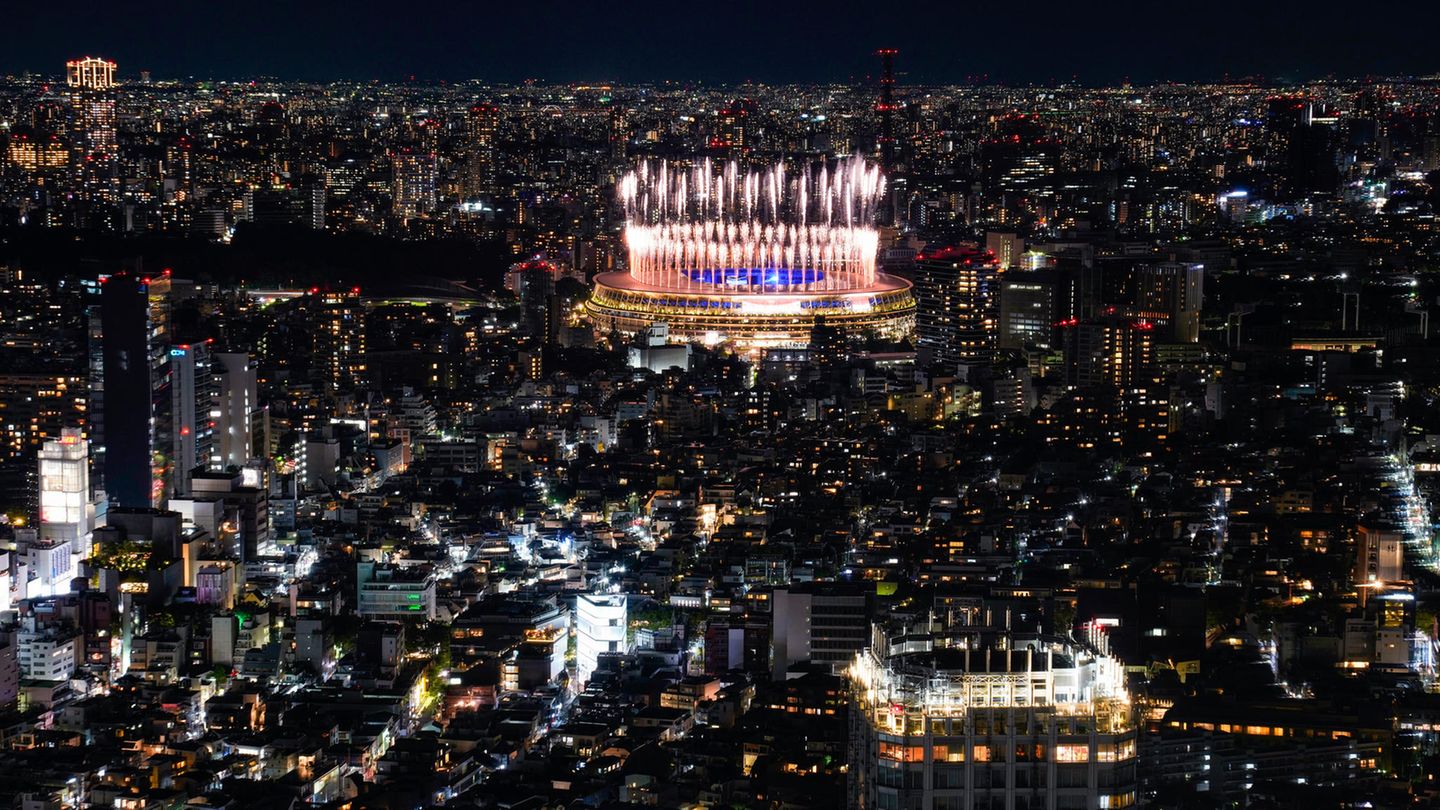With a happy celebration and a successful mixture of modern elements and the traditional, the probably most unusual Olympic Games came to an end on Sunday. In a nearly empty national stadium in Tokyo, as was the case at the opening ceremony and all competitions, IOC President Thomas Bach spoke of the “Olympic Games of Hope, Solidarity and Peace” and declared XXXII at 10:07 pm local time. Olympic Games with the official closing formula for ended. A little later, the Olympic flame also went out.
The final act of these games offered beautiful and typical elements of the traditional culture of Japan and a last brief glimpse into the fascinating culture of the country – of which Olympic participants had hardly seen anything due to the coronavirus pandemic. Nevertheless, the active “created the magic of these Olympic Games”, as Bach put it in his speech and emphasized: “You have inspired us with the unifying power of sport.”
Many athletes no longer participate when they graduate
The planned spectacular presentation of the upcoming host Paris turned out differently than planned. Actually, the organizers wanted to hoist a gigantic flag almost the size of a football field with the dimensions of 90 by 60 meters at the Eiffel Tower for 2024. But because of the strong wind in Paris, this part of the ceremony was omitted – and was replaced by recordings of a rehearsal from the beginning of June. “Au revoir à Paris,” said Bach at the end of his speech.
The athletes had to leave no later than 48 hours after their last competition, so that German Olympic champions such as tennis professional Alexander Zverev, long jumper Malaika Mihambo or wrestler Aline Rotter-Focken were no longer in the country than the small German delegation led by flag bearer Ronald Rauhe Entered stadium. In front of IOC boss Bach and Japan’s Crown Prince Akishino, who attended the celebration instead of his older brother, Emperor Naruhito.
When the athletes from 205 nations and the refugee team marched in, there was a lively atmosphere inside the stadium. The rules of distance seemed to be suspended, there was dancing and souvenir photos taken arm in arm. The German athletes gave away their little flags to the volunteers. Volunteers also carried the flags of those countries whose activists had already left Japan.
Protest on the sidelines of the closing ceremony
Well-known Japanese songs such as “Ue o Muite Arukou” (for example: “Let’s look up when we go”) by Kyuu Sakamoto from 1961 created a moving atmosphere before the award ceremony for the medal winners of the two marathon Competitions held in Sapporo that morning.
As with the opening ceremony, the ceremony was accompanied by a small, peaceful protest. Around 50 activists had gathered around the national stadium. “No Olympics” could be read on a poster. The fact that the Olympics with participants from all over the world were allowed to take place in the metropolis of Tokyo during the pandemic, despite the sharp rise in the number of cases, was sometimes viewed very critically in Japan.
Atmospherically, the final act seemed more exuberant and positive than the overture a good two weeks ago, which most viewers had received rather unspectacularly and without flair. When the French national anthem Marseillaise rang out and pictures were played from the roofs over Paris, the picturesque competition venues at the Eiffel Tower or at the Palace of Versailles, Tokyo was (almost) history and the metropolis on the Seine was the future of the Olympic summer.
I have been working in the news industry for over 6 years, first as a reporter and now as an editor. I have covered politics extensively, and my work has appeared in major newspapers and online news outlets around the world. In addition to my writing, I also contribute regularly to 24 Hours World.




